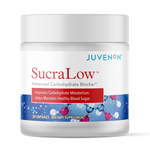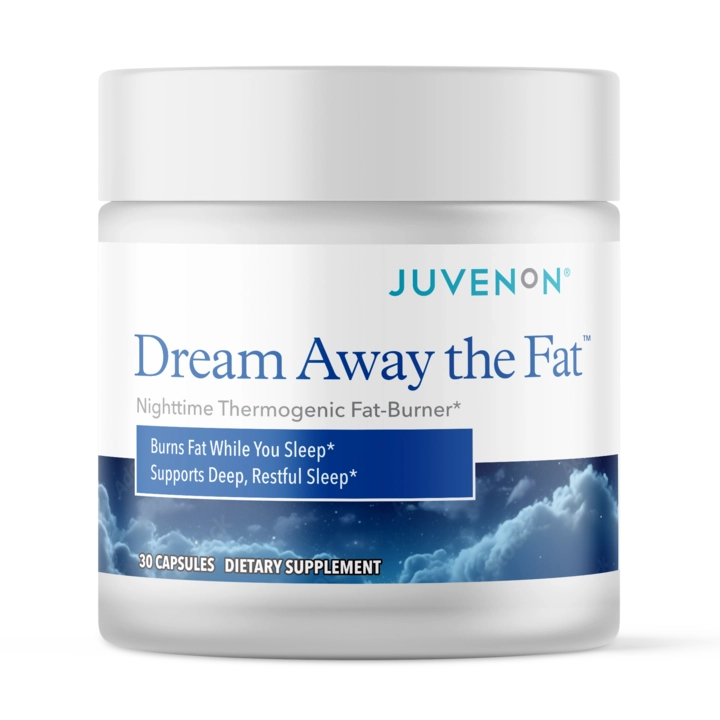Blood circulation is a fundamental aspect of overall health. When our circulatory system functions optimally, it efficiently delivers oxygen, nutrients, and vitamins to cells and organs throughout the body, promoting energy, immunity, and vitality. However, many people experience reduced circulation as they age or due to lifestyle factors, leading to issues like cold extremities, fatigue, or more serious conditions like heart disease.

Improving blood flow through a balanced intake of essential vitamins, dietary supplements, and certain lifestyle changes can boost circulation naturally. In this blog, we’ll explore the importance of blood circulation, symptoms of poor blood flow, and the best vitamins and lifestyle tips to enhance vascular health.
The Importance of Blood Flow and Circulation
Blood circulation is responsible for carrying oxygen, nutrients, and hormones throughout the body[1]. Good circulation is essential for optimal brain function, cardiovascular health, and muscle performance. Poor circulation can result in symptoms ranging from cold hands and feet to more severe health conditions.
When circulation suffers, so does your energy, immunity, and even skin health. Enhancing circulation promotes faster healing, helps manage blood pressure, and may prevent chronic conditions like cardiovascular disease.
Signs of Poor Circulation
Cold extremities
Experiencing cold hands and feet often, even when the weather is warm, can be an early indicator of poor blood circulation[2]. When blood circulation is efficient, it carries oxygen and nutrients throughout the body, maintaining a stable temperature in the extremities (hands and feet). However, if circulation is sluggish or restricted, blood flow to these areas can decrease, leading to sensations of coldness or chill.
In cases of poor circulation, blood doesn’t reach the extremities in sufficient quantities to keep them warm, because the body tends to prioritize vital organs like the heart and brain. The hands and feet are the farthest from the heart, so when blood flow is compromised, these areas experience the effects first.
Numbness or tingling
The sensation of pins and needles, particularly in fingers or toes, could signal that blood flow is being restricted[3]. Often described as tingling or a feeling that the area has "fallen asleep,"numbness or tingling can be an indication that blood flow to these regions is temporarily restricted. This sensation is medically referred to as paresthesia, and it happens when nerve signals are interrupted, typically due to limited blood flow or pressure on nerves.
In healthy circulation, blood consistently delivers oxygen and nutrients to nerves, allowing them to send clear signals to the brain. When blood flow is restricted, nerves do not receive the oxygen and nutrients they need, resulting in abnormal sensations like tingling or numbness.
Swelling in legs and feet
Swelling can be a sign of blood pooling in the lower extremities due to poor circulation, which prevents blood from effectively returning to the heart[4]. This condition, known as edema, occurs when the veins in the legs have difficulty pushing blood back up to the heart. In a healthy circulatory system, the muscles and blood vessels work together to move blood upward, aided by tiny one-way valves in the veins. However, if circulation is compromised, blood can begin to pool and exert pressure on the veins, causing fluid to leak into surrounding tissues, which leads to swelling.
Key Vitamins for Vascular Health
Certain vitamins can improve vascular health by strengthening blood vessels, reducing inflammation, and improving blood flow. Here are some essential vitamins that support circulation:
Vitamin C
Vitamin C is renowned for its immune-boosting effects, but it also plays a significant role in vascular health. It aids in the production of collagen, a protein that strengthens blood vessel walls, and acts as an antioxidant, protecting blood vessels from oxidative damage[5].
Vitamin E
Vitamin E improves blood circulation by widening blood vessels and preventing blood clots. This vitamin also helps keep platelets in check, reducing the risk of clot formation and supporting smooth blood flow[6].
Vitamin K
Vitamin K is essential for blood clotting, ensuring that blood vessels heal properly and reducing the risk of vascular damage. Vitamin K also helps prevent calcification in arteries, which keeps blood flowing freely[7].
Vitamin B3 (Niacin)
Niacin, or vitamin B3, is effective at reducing cholesterol levels, which can improve blood flow by preventing the buildup of plaque in arteries[8]. Niacin also promotes the dilation of blood vessels, which increases blood flow and reduces the risk of cardiovascular issues[9].
Essential Dietary Supplements
In addition to vitamins, several dietary supplements are known for their beneficial effects on circulation:
L-arginine
L-arginine is an amino acid that supports nitric oxide production, a compound that relaxes blood vessels and improves blood flow[10]. This supplement is popular among athletes and those looking to enhance cardiovascular health.
Omega-3 Fatty Acids
Omega-3s, commonly found in fish oil, are known to improve circulation by reducing blood viscosity and decreasing inflammation. These fatty acids also help lower blood pressure and reduce triglycerides, further promoting healthy blood flow[11].
Garlic
Garlic has been used medicinally for centuries and is known to improve blood flow by increasing nitric oxide production[12]. It also has anticoagulant properties, preventing blood clot formation and ensuring smooth blood flow.
Foods That Promote Healthy Circulation
Including specific foods in your diet can further enhance circulation. Here are some foods that help maintain healthy blood flow:
Beets
Beets are high in nitrates, which convert to nitric oxide in the body, helping to dilate blood vessels and improve circulation.
Fatty Fish
Rich in omega-3 fatty acids, fatty fish like salmon, mackerel, and sardines reduce inflammation and promote cardiovascular health[13].
Leafy Greens
Leafy greens, such as spinach and kale, are loaded with nitrates and antioxidants that support vascular health and reduce blood pressure.
Nuts and Seeds
Nuts like almonds and walnuts, as well as seeds like chia and flaxseed, are high in omega-3 fatty acids and vitamin E, both of which support circulation and overall heart health.
Lifestyle Changes for Improved Circulation
Making certain lifestyle adjustments can be very effective for enhancing circulation. Here are some tips to keep blood flowing optimally:
Importance of Regular Exercise
Exercise is one of the most effective ways to improve blood flow. Cardio exercises, like jogging, cycling, and swimming, get your heart pumping and help blood circulate more efficiently.
Staying Hydrated
Hydration is crucial for maintaining blood viscosity. Drinking enough water daily helps the body transport nutrients effectively and supports smooth blood flow.
Maintaining a Balanced Diet
A diet rich in antioxidants, fiber, and healthy fats helps keep blood vessels healthy and reduces the buildup of plaque, which can hinder circulation.
Increase Blood Flow and Enhance Circulation With BloodFlow-7®
Juvenon’s BloodFlow-7® is a supplement that combines several ingredients to support optimal blood flow. Its key ingredients include nitric oxide boosters like plant-based botanical S7® and other natural compounds that enhance vascular health. By stimulating nitric oxide production, BloodFlow-7® helps dilate blood vessels and promotes smooth blood circulation. It may be a valuable supplement for those looking to boost their circulation naturally.
Improving blood circulation can have far-reaching benefits, from increased energy levels to reduced risk of cardiovascular diseases. By incorporating key vitamins, supplements, foods, and lifestyle habits into your daily routine, you can boost circulation and support a healthier, more energetic life.
FAQs About Best Vitamins to Improve Blood Flow and Circulation
Which vitamin is best for blood circulation?
Vitamin E and vitamin C are highly effective for promoting healthy circulation. Vitamin E helps blood vessels expand and reduces clotting, while vitamin C strengthens blood vessel walls.
Does vitamin B12 help blood circulation?
Vitamin B12 is essential for producing red blood cells, which are responsible for carrying oxygen throughout the body. While it doesn't directly enhance circulation, adequate levels of B12 prevent anemia and keep blood moving efficiently.
What improves blood circulation in the body?
A combination of regular exercise, a balanced diet, hydration, and specific vitamins and supplements, like vitamin C, vitamin E, and L-arginine, can significantly improve circulation.
What is the best drink for blood circulation?
Beet juice is an excellent choice, as it contains nitrates that convert to nitric oxide, which dilates blood vessels. Other beneficial options include green tea, ginger tea, and water, as they promote blood flow and overall vascular health.
References:
[1]https://www.ncbi.nlm.nih.gov/books/NBK279250/
[2]https://my.clevelandclinic.org/health/diseases/23045-cold-feet
[3]https://my.clevelandclinic.org/health/diseases/21882-poor-circulation
[4]https://www.hopkinsmedicine.org/health/conditions-and-diseases/chronic-venous-insufficiency
[5]https://pmc.ncbi.nlm.nih.gov/articles/PMC3869438/
[6]https://pmc.ncbi.nlm.nih.gov/articles/PMC8874674/
[7]https://ods.od.nih.gov/factsheets/VitaminK-HealthProfessional/
[10]https://pubmed.ncbi.nlm.nih.gov/34251644/
[11]https://ods.od.nih.gov/factsheets/Omega3FattyAcids-HealthProfessional/
[13]https://www.mayoclinic.org/diseases-conditions/heart-disease/in-depth/omega-3/art-20045614






















